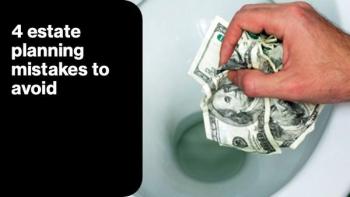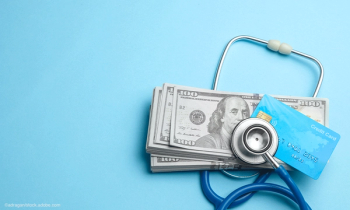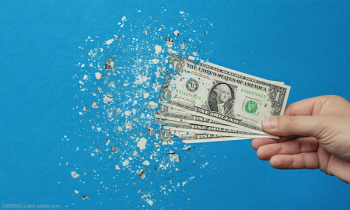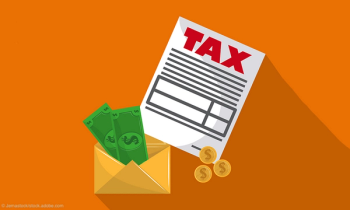
Five Ways Physicians Can Stay Out of Debt
Incurring too much personal debt can add to physicians' sense of stress and negatively affect well-being. Here are five simple strategies to take control.
For years, multi-millions of citizens have racked up personal debt via loans, credit cards, and other forms of financing. It's probable that you, as a physician, have incurred financial debts. Can a person incur large financial deficits and expect no fallout? Such spending, too soon, diminishes your ability to plan for the future, and worse, to seize current opportunities.
All told, the more you owe, the more restricted you are! As time marches on, I find (and you might share this insight) that the more material possessions that I've acquired, the less I'm likely to feel in control of my time. In college and in my early twenties, when I had little, I felt the most free.
At this moment, what would it feel like to have all of your credit cards paid off? What if your monthly rent or mortgage was paid up months in advance? How would you feel if your auto loan was completely paid? How would it feel if you were able to pay some utility bills for months in advance? For most people it would feel wonderful. And, you'd feel more in control.
Yes, you'd lose a little in interest that you could have earned if the money sat in a bank account. However, after I've paid my electric bill for months in advance, when I receive the next month's bill and nothing is due because I have a huge credit, I am elated. I grin when I view these kinds of bills, and so will you.
Less Spending
To reduce your financial debts, place a freeze on spending, regardless of which items entice you, until you have zero balances on your credit cards. Acquiring items that you don't need, and which don't save you time, might be satisfying, but ultimately can be draining.
Below are tips for controlling your checkbook:
1. Write checks to pay bills far in advance of their due dates. Then, maintain an "advance" file that has a folder for each day of the month. Put the check in a sealed, addressed, and stamped envelope, and then put the envelope in the appropriate folder for the day it is to be mailed. As such, the money is allocated in advance in your checkbook, while your bills are paid on time. If your checking account happens to pays interest, you do not lose any interest while your check sits in your file folders.
2. Occasionally, overpay your balance on continuing accounts to gain the aforementioned psychological boost. When you see a credit on your next statement you feel good, and you've improved your reputation with creditors.
3. Keep a sticky note in your checkbook for quick reference to what's coming in this month and what needs to be paid. This tactic offers you a running, mini cash flow that you can review any time. Update it weekly, or daily, if necessary.
4. Review your old checks to examine what you paid to whom, for what. Review your monthly credit card statements. Make a red mark next to those expenditures that you really did not need to make, or that you could have forgone.
5. Consider any expenditures on the horizon. Which can you do without?
Newsletter
Optimize your practice with the Physicians Practice newsletter, offering management pearls, leadership tips, and business strategies tailored for practice administrators and physicians of any specialty.








